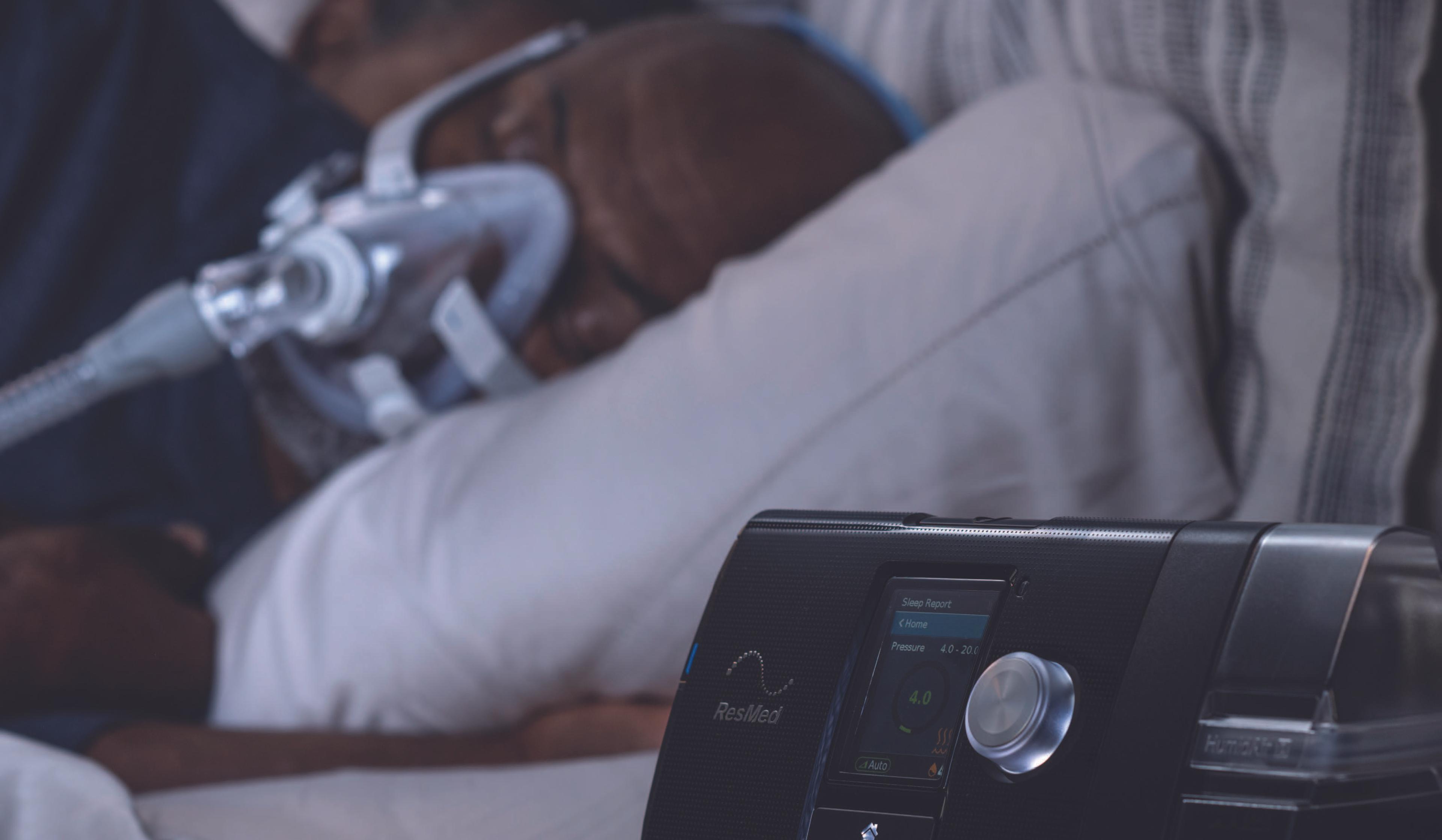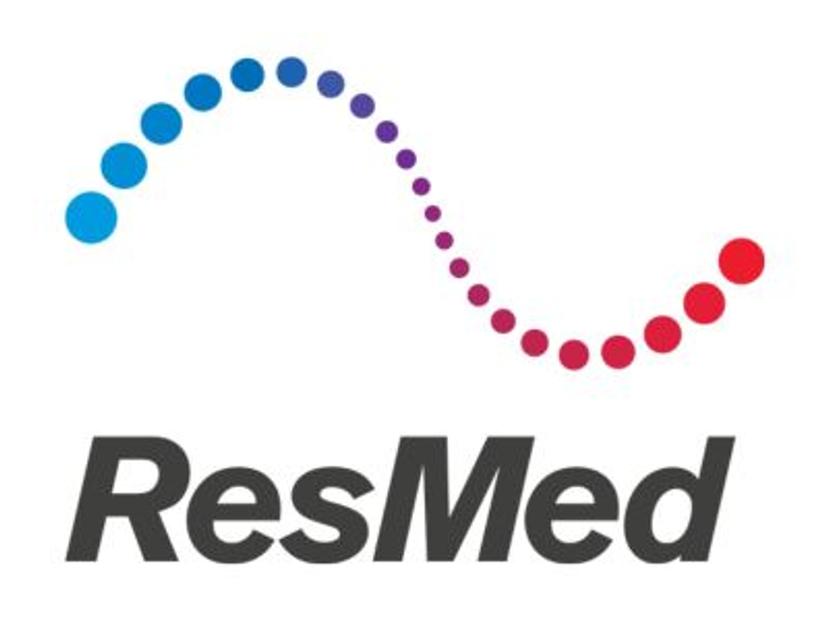Abstract
ResMed was founded in 1989 in Australia and has since grown into a prominent company with presence in over 140 countries. The compan specialises in developing and manufacturing innovative medical devices and software solutions for the diagnosis, treatment, and management of sleep-related breathing disorders, including sleep apnea, chronic obstructive pulmonary disease (COPD), and other respiratory conditions along with SaaS for providing out of hospital care through remote monitoring.
One of ResMed's key areas of expertise lies in continuous positive airway pressure (CPAP) therapy, which is widely regarded as the gold standard treatment for obstructive sleep apnea. This case study captures the global growth story of ResMed, founded by Dr. Peter Farrell and Dr. Colin Sullivan (the device's inventor), its transformation from a medical device manufacturer to a digital health leader, the various strategies the company followed to establish its position and gain leadership in the India market.
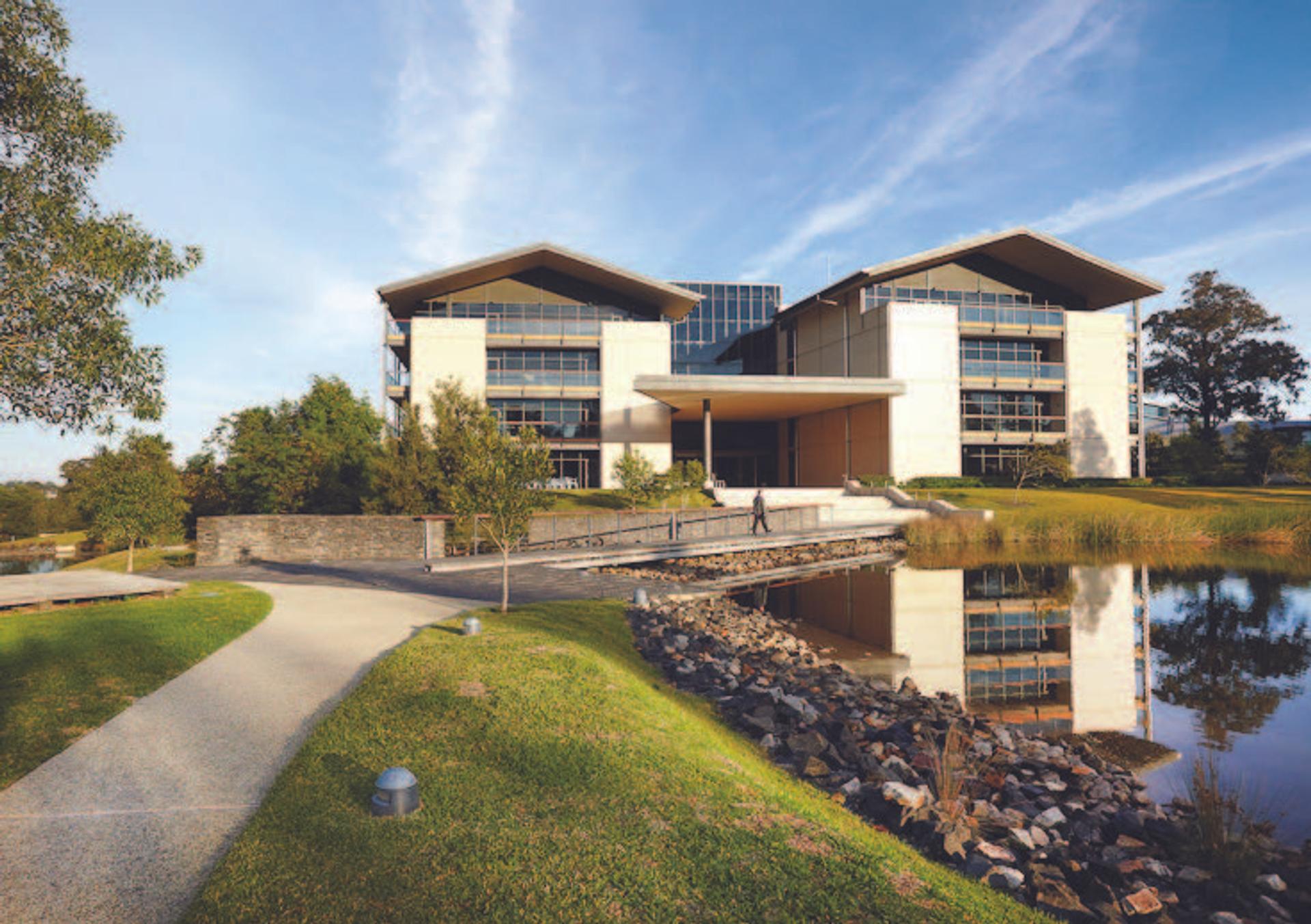
Introduction
In 1981 Professor Colin Sullivan and colleagues at the University of Sydney developed the first continuous positive airway pressure (CPAP) device, the first successful, non-invasive treatment for obstructive sleep apnea (OSA). After publishing the successful results in Lancet, Sullivan, the inventor of the technology, sought a compatible partner to help commercialise this life-changing technology. In 1986 he approached Chris Lynch, Managing Director of the Baxter Centre for Medical Research and Vice President of R&D for Baxter Healthcare, who in turn reached out to his Baxter co-worker Dr. Peter Farrell. In 1987 Farrell, on behalf of Baxter, invested in Sullivan’stechnology to further evolve the CPAP prototype and undertake clinical trials on a group of patients with severe sleep apnea. In 1989, after Baxter decided not to enter the sleep apnea market for a variety of reasons, Farrell founded ResMed (short for “Respiratory Medicine”) to buy Sullivan’s sleep technology from Baxter and to commercialise his prototype CPAP device to allow scalable device production – in other words, to bring CPAP to the world at large.
So, ResMed started as a management buyout of technology from Baxter Healthcare, a large U.S. healthcare organisation that since 1989, has delivered on Farrell’s promise: making CPAP masks, CPAP machines and in-home life support ventilators more comfortable, quieter, and easier to use. The sleep technology that was bought for AU $1.2 million in 1989, has led ResMed to be US$36 billion market cap company, with revenues over US $4 billion today and 8000+ employees globally.
Since its formation ResMed has acquired a number of businesses, including distributors, suppliers, developers of medical equipment and related technologies and software solution providers, with a strategy to change 250 million lives by 2025 with sleep apnea, chronic obstructive pulmonary disease (COPD) and other chronic respiratory diseases breathe and live better.
In addition to CPAP therapy, ResMed offers a variety of other respiratory care solutions and sleep screening tools. This includes bilevel positive airway pressure (BiPAP) devices, which provide different pressure levels for inhalation and exhalation, catering to patients with more complex respiratory needs. It also offers portable oxygen concentrators (POCs) for patients who require supplemental oxygen therapy on the go. For screening devices like onesleeptest and homesleeptest. Beyond hardware, ResMed has a strong focus on software and digital health solutions. ResMed has developed cloud-based platforms, such as AirView and myAir, which enable healthcare providers to remotely monitor and manage their patients' therapy data. These platforms provide valuable insights and analytics that help optimise treatment and improve patient outcomes. ResMed is committed to research and development, continuously investing in cutting edge technologies to advance respiratory care. They collaborate with healthcare professionals and academic institutions to drive innovation in the field and ensure that their products remain at the forefront of medical technology.
India Strategy
Studies estimate that over 104 million people in India suffer from obstructive sleep apnea (OSA). OSA is a common lifestyle problem, yet not many are aware of the dangers of the condition. It has association with type 2 diabetes, hypertension, cardiovascular diseases that leads to low quality of life. Easily characterised by snoring, OSA happens due to the blocking of the airways. When the muscles around neck, including the tongue, relax and fall back while sleeping, it causes obstruction or blockage in the upper airway, leading to a momentary pause in breathing. This is referred to as apnea.
ResMed recognised the potential of its expertise and solutions in the Indian market because of increased prevalence of sleep-related disorders with rising urbanisation and changing lifestyles in India’s vast population. It saw the urgent necessity for diagnosis and treatment, and an opportunity for ResMed's sleep apnea solutions, to make a significant impact on public health in India. Also, the Indian Government’s focus on the healthcare sector with increased budgetary spending, improved infrastructure, and growing awareness on well being, has further persuaded global companies to scale their impact and introduce its advanced medical devices and solutions.
ResMed launched its own office in India to establish a direct presence and have greater control over operations in the country. This approach allowed ResMed to have a dedicated team to manage sales, marketing, distribution, and customer support activities. By having its own office, ResMed could build a strong brand presence and tailor its strategies to the specific needs of the Indian market. ResMed also focused on forming strategic partnerships with local distributors in India. These partnerships helped ResMed leverage the expertise and established networks of the distribution partners to reach a wider customer base and expand its market presence efficiently. Collaborating with local distributors familiar with the Indian healthcare landscape and regulatory environment enabled ResMed to navigate the market more effectively.
ResMed's decision to combine a direct presence with distribution partnerships allowed to leverage their global expertise while tapping into the local knowledge and networks of their distribution partners. This approach provided a balance between control and flexibility, ensuring effective market penetration and customer reach in India.
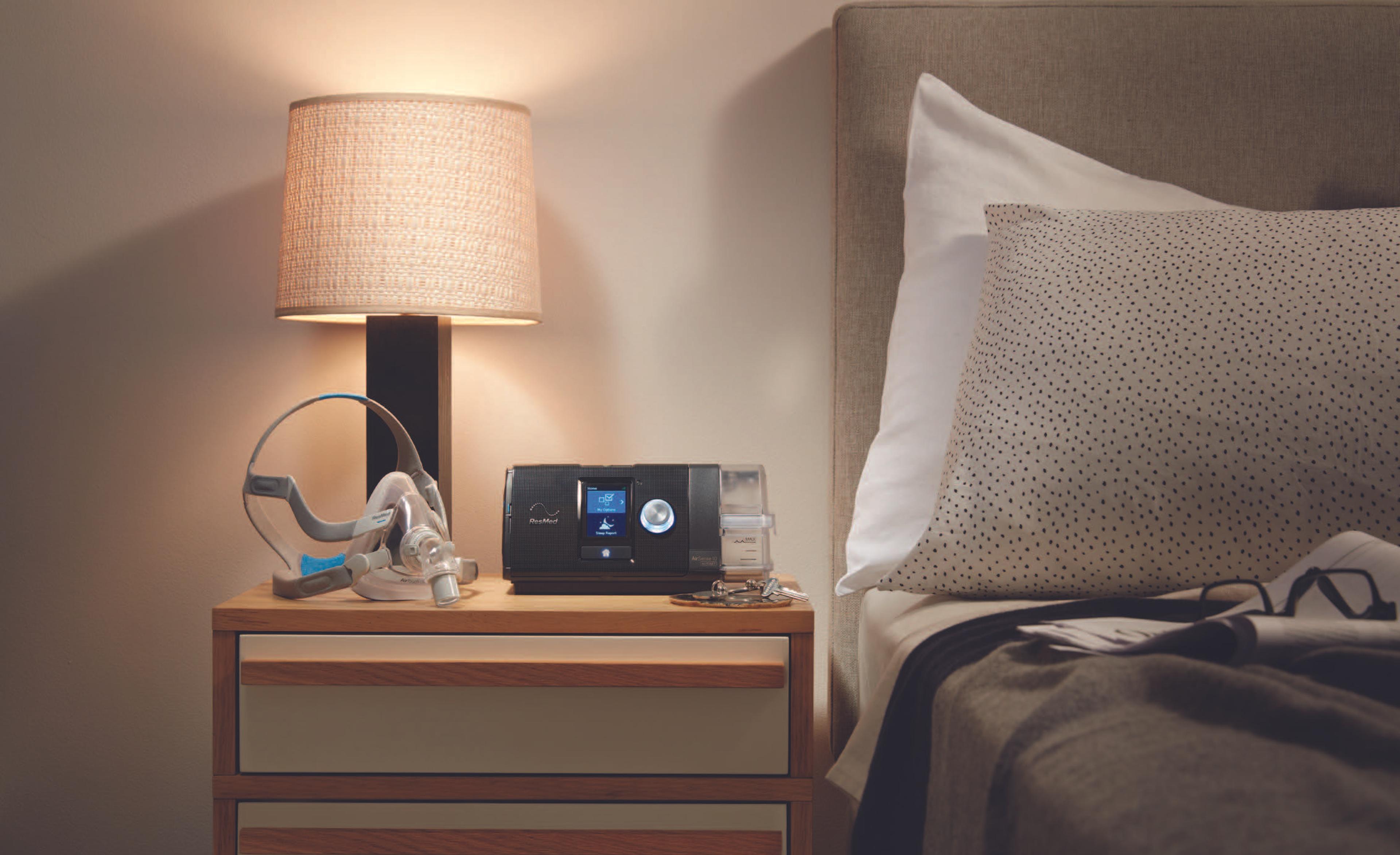
Seeing The Future
ResMed believes that the sleep apnea and respiratory care markets will continue to grow in the future. This growth is attributed to several factors. Firstly, there is an increasing awareness of obstructive sleep apnea (OSA) and chronic obstructive pulmonary disease (COPD). Secondly, there is an improved understanding of the role of sleep apnea treatment in managing cardiac, neurologic, metabolic, and related disorders. Additionally, there is a better understanding of the role of non-invasive ventilation in COPD management. Lastly, there is a rising trend in the utilization of digital and product technology to enhance patient outcomes and create efficiencies for both customers and providers.
ResMed’s future strategy for expanding business operations and capitalising on the growth of the sleep apnea and respiratory care markets that remains underpenetrated and underserved include –
- Need for continuous product development and innovation through acquisitions and trials. ResMed spends 7% of its profits on Research & Development.
- Broaden digital health technology foundation, through cloud-based digital health applications along with ResMed devices are designed to provide connected care to improve patient outcomes. Perfect case of combining diagnosis, treatment, and tracking can have significant implications for future growth and profitability.
- Expand SaaS solutions in out-of-hospital care settings, to transform out-of-hospital (OOH) healthcare through a strategy of enabling better patient care, and improving clinical decision support.
- Expand geographic presence, with products in more than 140 countries to sleep clinics, home healthcare dealers, patients and third-party payors. ResMed intends to increase its sales and marketing efforts in principal markets, as well as expand the depth of its presence in other high growth geographic regions.
- Expand into new clinical applications of ResMed’s technology for significant unmet medical needs. Studies have established a clinical association between OSA and both stroke and chronic heart failure and have recognised sleep apnea as a cause of hypertension.
Study published in Lancet Respiratory Medicine in 2019 estimated that mild to severe OSA impacts more than 936 million people worldwide. Despite the high prevalence of OSA, there is a general lack of awareness of OSA among both the medical community and the general public, and less than 20 percent of those with OSA have been diagnosed or treated. Many healthcare professionals are often unable to diagnose OSA because they are unaware that such non-specific symptoms as excessive daytime sleepiness, snoring, hypertension, and irritability are characteristic of OSA. Studies have shown that sleep apnea is present in approximately 83 percent of patients with drug-resistant hypertension, approximately 77 percent of patients with obesity, approximately 76 percent of patients with chronic heart failure and approximately 72 percent of patients with type 2 diabetes.
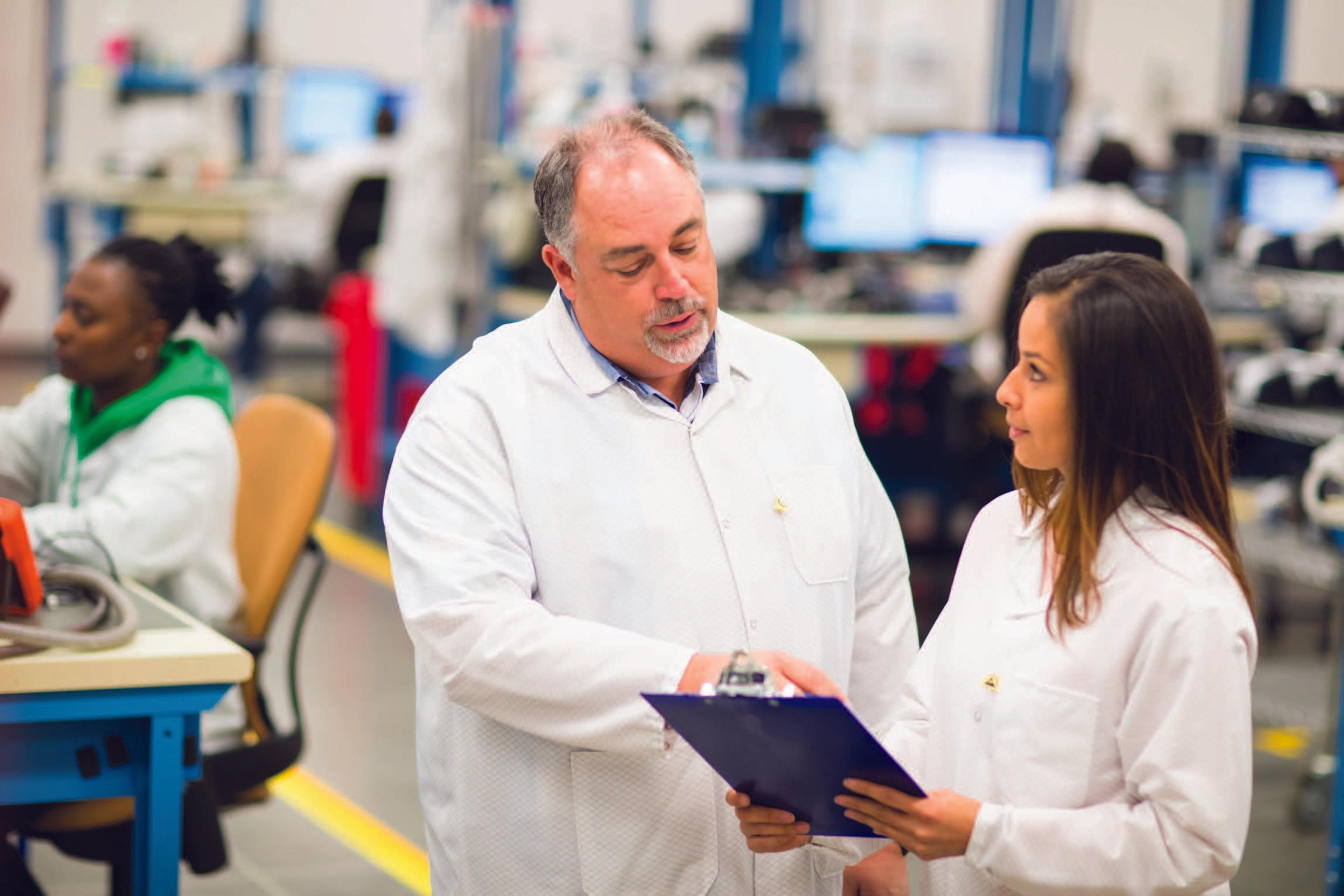
Planning Ahead
Across the sleep and respiratory care platforms, ResMed supports clinical trials in many countries including the United States, Germany, Netherlands, France, Japan, the United Kingdom, Switzerland, China, Spain, Canada, Singapore, and Australia to develop new clinical applications for its technology. It continues to support some of the largest sleep apnea studies in history by performing advanced statistical analyses on millions of real-world clinical data points collected through its cloud-connected devices and patient engagement tools, that enables its product development efforts.
Key learnings from this case study for India-aspirational med-tech companies are -
- Thorough market research is central to India market success. Understand demographic-cultural-regulatory environment, and competitive dynamics. Gather insights on market potential and growth opportunities specific to your niche area
- Adapt your product or service offerings. Localisation efforts, such as language translations, cultural sensitivities, and pricing strategies, products tailored to the Indian customer needs and preferences can significantly impact the success
- Build local partnerships and strategic alliances to help navigate the complex business environment, provide insights into customer preferences and facilitate distribution and logistics, leveraging their established networks, market knowledge, and expertise
- Engage with local regulatory bodies, legal advisors, and consultants to ensure compliance and avoid potential challenges or delays. Comply with the relevant regulatory frameworks and obtain necessary approvals or licenses for your products or services
- Provide excellent customer service and support to gain trust and build long-term relationships with Indian customers. This may involve setting up local customer support centres, offering multilingual support, and providing comprehensive after-sales service
- Invest in marketing and branding efforts to build trust and raise awareness about your company and offerings in the Indian market. Understand the local marketing channels, preferences, and media platforms to effectively reach your target audience
- Consider the price sensitivity and affordability of the Indian market while developing pricing strategies. Explore distribution channels that reach both urban and rural areas effectively, considering the vast geographical spread of the country
- Familiarise yourself with local business customs, negotiation styles, and decision-making processes. Building strong relationships and understanding local etiquettes can enhance business
- Recruit and develop a diverse workforce with local talent to help navigate the Indian market effectively. Cultural understanding and local insights can be invaluable when building relationships, understanding customer needs, and making strategic decisions
- The Indian market is dynamic and constantly evolving. Stay agile and be open to adapting your strategies based on market feedback, emerging trends, and changing customer preferences.
